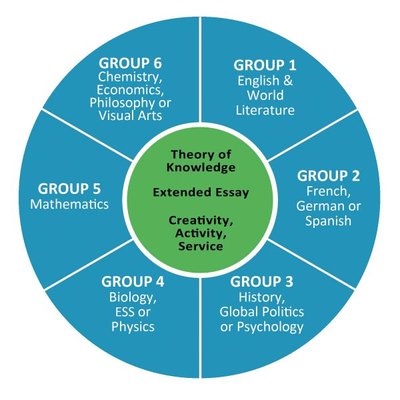IB Information Evening
We hope you find our presentation informative and interesting and thank you for taking the time to watch. The live Q&A will begin at 20:15 and can be accessed via the video below. Please also refer to our FAQ below for more information.
Introduction
Live Q&A
IB Course Choices at Varndean
Since the time of recording this presentation and printing of our prospectus the college has embarked on a curriculum provision review for the IB. As a result we are excited to announce the changes detailed below. More details will be given during the Q&A.

Frequently Asked Questions
Economics is an exciting, dynamic subject that allows students to develop an understanding of the complexities and interdependence of economic activities in a rapidly changing world.
At the heart of economic theory is the problem of scarcity. While the world's population has unlimited needs and wants, there are limited resources to satisfy these needs and wants. As a result of this scarcity, choices have to be made. The DP economics course, at both SL and HL, uses economic theories to examine the ways in which these choices are made:
- At the level of producers and consumers in individual markets (microeconomics)
- At the level of the government and the national economy (macroeconomics)
- At an international level where countries are becoming increasingly interdependent through international trade and the movement of labour and capital (the global economy)
- Introduction to Economics
Exploring questions like 'what is economics?' and 'how do economists approach the world?'
- Microeconomics
Studying concepts like supply, demand, government intervention, and market failure
- Macroeconomics
Studying measures of economic activity, macroeconomic objectives, demand-side policies, and supply-side policies
- The Global Economy
The benefits of international trade, protectionism, exchange rates, balance of payments, sustainable development, and barriers/strategies to development
Art history is itself the study of the rich heritage of visual arts produced by human societies. When studying it as an IB Diploma course, students get a uniquely interdisciplinary experience, with links to a wealth of other studies: literature, religion, science, architecture, language, technology, anthropology, archaeology and theatre.
Human cultures from the earliest times have produced art that has fulfilled a range of functions—from painting, sculpture, architecture, design, photography and applied arts, to installation, conceptual and body art. Students of DP art history can develop their understanding of artistic heritage in broad terms, from delving into scholarly sources and gaining first-hand knowledge of museum and art gallery collections, to analysing the visual imagery surrounding them in all aspects of life.
Art history gives students the means to critically engage with the images which saturate our world, to explore why they look the way they do, and to interpret their layers of meaning. And the subject links to the core of the Diploma Programme, providing tangible examples for students to discuss in theory of knowledge (TOK).
IB World Schools like ours can design their own course of study by choosing topics relevant and of interest to students. The choice of topics in the syllabus encompasses a range of world cultures. And our students develop a keen insight into those topic areas, gaining a deep knowledge and understanding by means of a core curriculum which requires analysis of artworks in a variety of ways: in terms of form, meaning and function, historical context and patronage, materials and techniques, as well as through understandings of identity.
Topics include:- Topic 1: Art of Ancient Greece or Topic 2: Art of Ancient Rome 130
- Topic 3: Art of Christendom (pre-1400) or Topic 4: Art of South Asia and South-East Asia (pre-1300)
- Topic 5: Art of the Americas (pre-1600) or Topic 6: Art of China and Japan (c.1000 - c.1600)
- Topic 7: Art of the Islamic World (c. 600 - c.1600) or Topic 8: Art of the Renaissance (c.1400 - c.1550)
- Topic 9: Art of the Baroque Period (c.1600 - c.1720) or Topic 10: Rococo to Realism (c.1720 - c.1860)
- Topic 11: Modern Art in Europe and America (c.1860 - c.1960) or Topic 12: Global contemporary art (c.1960-)
Seven grade 9-6 including English Maths and Science. Some HL courses have their own entry requirements.
If you choose Varndean as your 6th Form we will discuss a plan B at your application interview. If you miss the grades we will look at actioning that plan B in August after results when you come for your enrolment interview.
Yes our IB teachers teach on a range of course including A-levels, BTEC and GCSE.
It is its own separate qualification run by the IBO - It's not the 13-subject French 'Bac,' the 'E-Bac' GCSE qualification or the AQA 'Baccalaureate' which is an A-level combination.
Yes, but only in Film and German at the moment.
The final exams are in the first 3 weeks of May in Year 2 and results are issued on July 6.
- Students cannot Self-Learn a Language B/ Language Acquisition Subject in group 2. They must be provided with a set amount of hours of instruction from an IB trained teacher. The college is not in the financial position to accommodate this for languages such as Italian with only 2 or 3 students per class.
- Parents can pay privately for tuition however this is currently not part of the colleges policy - very expensive, means we have no control over quality and having no HR role makes it difficult when it comes to coursework/ examinations.
- Students can self-study a Literature course in another language at SL in group 6, for example Polish Literature.
- This used to be straight forward and a sound option for some students. However as of September 2019 the new IB policy states that all students must be provided with a teacher in that language of instruction. Again, the current college policy does not allow for this as it is not financially viable to find an IB trained Polish teacher to support one student.